The Women in Engineering program for the 2024 IEEE AP-S/URSI conference will host a Cocktail Reception that will be open to all conference attendees. Any attendees who are interested in attending this Cocktail Reception will need to sign up when they register for the conference. The Cocktail Reception will feature:
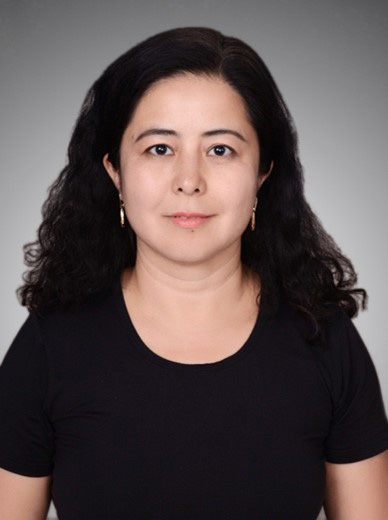
Dr. Reyhan Baktur is an associate professor at the department of Electrical and Computer Engineering (ECE), Utah State University (USU). Her research interests include antennas and microwave engineering with a focus on antenna design for CubeSats; optically transparent antennas; multifunctional integrated antennas, sensors, and microwave circuits. She is also the faculty advisor for the USU’s Student CubeSats team, where the current mission’s main payload is her transparent antenna, which is set out to fly in 2026. She is affiliated with the Center for Space Engineering at USU, the Space Dynamics Laboratory (the university affiliated research center), and collaborates with NASA Goddard Space Flight Center. Dr. Baktur is an an IEEE Antennas and Propagation (APS) Distinguished Lecturer of 2022-2024, AdCom member of IEEE APS, and is active in US National Committee of the International Union of Radio Science, serving as the commision B chair and was the inaugural chair for the Women in Radio Science. Dr. Baktur is extremely dedicated to undergraduate education, promoting diversity and inclusion, and is excited about every learning opportunity with APS/URSI communities.
Abstract
In wireless communication, the link budget is a fundamental aspect and plays a crucial role in guiding antenna design and signal processing strategies for engineers. The objective of a link budget design and analysis is to “close the link”, where major and random system elements need to be considered and creatively resolved to reach the goal. The speaker dedicates this presentation to all of her mentors, colleagues, and students who have been active parts in helping her to close the link, and looks forward to sharing these lessons and experiences.
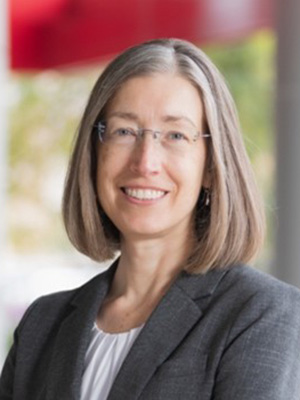
Susan Hagness she is the Philip D. Reed Professor in Electrical and Computer Engineering and the Maria Stuchly Professor of Electrical Engineering at the Department of Electrical and Computer Engineering (ECE) at UW-Madison in 1998, where. She served as Associate Dean for Research and Graduate Affairs in the College of Engineering between 2014 and 2017 and has been serving as the Chair of the Department of Electrical and Computer Engineering since 2018. She is also a faculty affiliate of the Department of Biomedical Engineering and a member of the Imaging and Radiation Sciences program within the UW Carbone Cancer Center. Over the past six years, her leadership efforts have significantly increased the gender diversity within the UW-Madison ECE department, where women now comprise nearly 30% of the faculty – a high percentage for ECE departments at large research universities within the U.S. Prof. Hagness’s research primarily focuses on electromagnetic interactions with tissue for medical applications. Prof. Hagness is a Fellow of the IEEE, AAAS, AIMBE, and NAI. She was the recipient of a Presidential Early Career Award for Scientists and Engineers in 2000. In 2002, she was named one of the 100 top young innovators in the world by MIT Technology Review. She is also the recipient of the UW-Madison Emil Steiger Distinguished Teaching Award (2003), the IEEE Engineering in Medicine and Biology Society Early Career Achievement Award (2004), the International Union of Radio Science Issac Koga Gold Medal (2005), the IEEE Transactions on Biomedical Engineering Outstanding Paper Award (2007), the IEEE Education Society Mac E. Van Valkenburg Early Career Teaching Award (2007), the UW System Alliant Energy Underkofler Excellence in Teaching Award (2009), the Physics in Medicine and Biology Citations Prize (2011), the Sven Berggren Prize from the Royal Physiographic Society of Lund, Sweden (2015), and UW-Madison College of Engineering awards for teaching (2014), research (2018), and equity and diversity efforts (2021). She has held a variety of appointed and elected leadership roles within professional societies and advisory boards, including the IEEE Antennas and Propagation Society, the IEEE Engineering in Medicine and Biology Society, the U.S. National Committee of the International Union of Radio Science, and the ASEE Engineering Research Council.
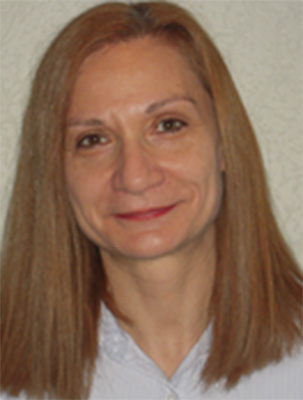
Natalia K. Nikolova is a Professor in the Department of Electrical and Computer Engineering at McMaster University. Her research interests include inverse scattering, microwave imaging and radar, high-frequency measurement instrumentation, as well as computer-aided analysis and design of high-frequency structures and antennas. Prof. Nikolova is a Fellow of the IEEE, the Canadian Academy of Engineering, and the Engineering Institute of Canada.
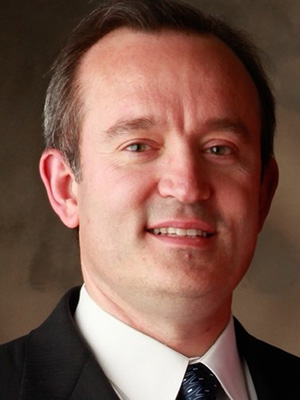
Danilo Erricolo is a Professor and the Director of the Andrew Electromagnetics Laboratory in the ECE Department, and the Director of International Programs in the College of Engineering at the University of Illinois Chicago, Chicago, IL, USA. His research interests are primarily in the areas of antenna design, electromagnetic propagation and scattering, high-frequency techniques, wireless communications, electromagnetic compatibility, the computation of special functions, and magnetic resonance imaging. Dr. Erricolo has an extensive record of service for the U.S. National Committee (USNC) of the International Union of Radio Science (URSI), a committee of the US National Academies, and for the institute of Electrical and Electronics Engineers (IEEE). In particular, he was the General Chairman of the 2012 IEEE International Symposium on Antennas and Propagation and USNC-URSI National Radio Science Meeting, held in Chicago, IL, USA in July 2012. He was the Editor-in-Chief of the IEEE Transactions on Antennas and Propagation (2016- 2022). Since 2023, he has served as Chair of the Meetings Committee. He is a Fellow of IEEE, a Fellow of AAIA, a Fellow of the Electromagnetics Academy, a University of Illinois Scholar, and the recipient of the 2023 USNC-URSI Impact Award.
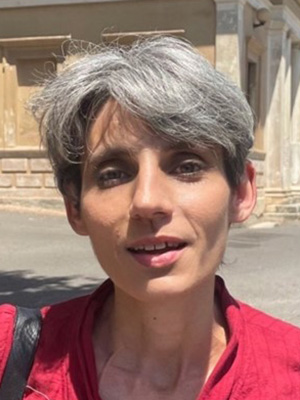
Enrica Martini (S’98-M’02-SM’13) was born in Spilimbergo (PN), Italy, in 1973. In 1998, she received the Laurea degree (cum laude) in telecommunication engineering from the University of Florence, Italy, where she worked under a one-year research grant from the Alenia Aerospazio Company, Rome, Italy, until 1999. In 2002, she received the PhD degree in informatics and telecommunications from the University of Florence and the Ph.D. degree in electronics from the University of Nice-Sophia Antipolis, under joint supervision. In 2002, she was appointed Research Associate at the University of Siena, Italy. In 2005, she received the Hans Christian Ørsted Postdoctoral Fellowship from the Technical University of Denmark, Lyngby, Denmark, and she joined the Electromagnetic Systems Section of the Ørsted•DTU Department until 2007. From 2007 to 2017 she was a Postdoctoral Fellow at the University of Siena, Italy. From 2016 to 2018 she was the CEO of the start-up Wave Up Srl, Siena, Italy, that she co-founded in 2012. She is currently associate professor at the University of Siena, Italy. She was the General Chair of the 16th International Congress on Artificial Materials for Novel Wave Phenomena (Metamaterials 2022). Dr. Martini was a co-recipient of the 2016 Schelkunoff Transactions Prize Paper Award, of the Best Paper Award in Antenna Design and Applications at the 11th European Conference on Antennas and Propagation in 2017, of the Best Poster Award at the Metamaterials Congress in 2019 and of the Best Paper Award in Electromagnetics at the 15th European Conference on Antennas and Propagation in 2021. Her research interests include metasurfaces, metamaterial characterization, electromagnetic scattering, antenna measurements, finite element methods and tropospheric propagation.
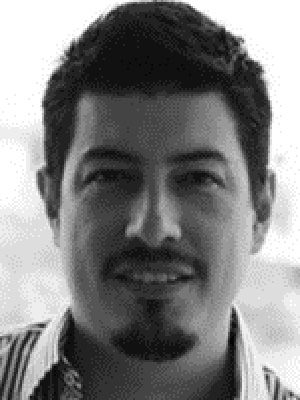
Hugo G. Espinosa (Senior Member, IEEE) received the bachelor’s degree in electronics and telecommunications engineering from the Monterrey Institute of Technology and Higher Education, State of Mexico, Mexico, in 1998, the master’s degree in electrical engineering from the University of São Paulo, São Paulo, Brazil, in 2002, and the Ph.D. degree (summa cum laude) in electrical engineering from the Technical University of Catalonia, Barcelona, Spain, in 2008.,He has been a Visiting Researcher with the Federal Polytechnic School of Lausanne, Lausanne, Switzerland, and a Postdoctoral Fellow with the School of Electrical Engineering, Tel Aviv University, Israel. Since 2014, he has been with the School of Engineering and Built Environment, Griffith University, Brisbane, QLD, Australia, where he is currently a Senior Lecturer in electronic engineering. His research interests include antennas and propagation, wireless sensor networks, electromagnetic separation of non-ferrous materials, inertial-magnetic sensors, wearable sensor technology for human monitoring, and engineering education. He is the Chair of the Microwave Theory and Techniques/Antennas and Propagation (MTT/AP) Joint Chapter of the IEEE Queensland Section. He is also an IEEE STEM Ambassador.